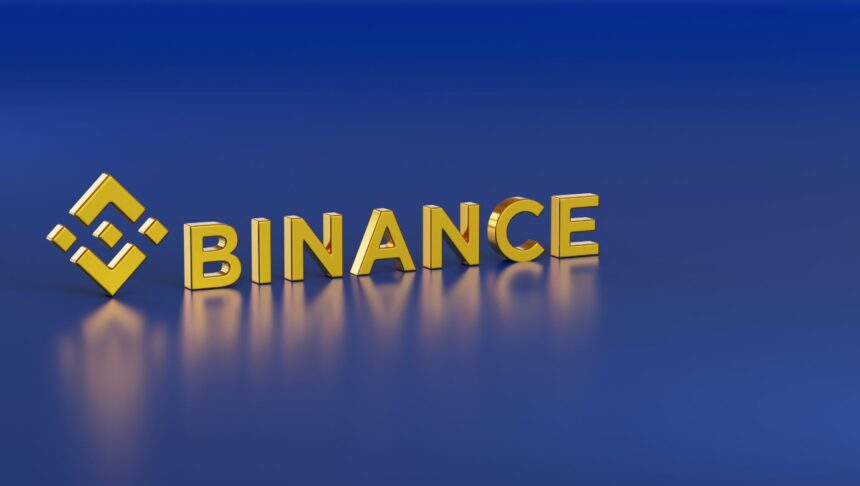Join Our Telegram channel to stay up to date on breaking news coverage
Traders have been withdrawing billions of dollars from Binance as the world’s largest crypto exchange faces mounting issues. In what many see as the next step in “Operation Choke Point 2.0”, Binance was sued by the Commodity Futures Trading Commission (CFTC) on Monday and accused of operating illegally in the U.S. and violating rules designed to prevent illicit financial activities.
According to crypto data provider Nansen, Binance experienced net outflows of $2.1 billion on the Ethereum blockchain over seven days as of Monday evening. Overall, Binance holds $63.2 billion in the exchange’s publicly disclosed wallets, as per Nansen data. Nansen analyst Andrew Thurman said on Monday that the pace of withdrawals had increased compared to normal activity and picked up after the CFTC announcement.
Probably due to these troubles, last week, Binance announced the reinstatement of fees on spot bitcoin trading after temporarily removing them last summer. As if all the news wasn’t bad enough, the exchange also had to temporarily suspend spot trading for a few hours to fix a software error.
Yet another setback for the crypto giant occurred on Tuesday when a federal judge blocked Binance.US, the American affiliate of Binance, from buying Voyager Digital’s customer accounts out of bankruptcy while federal authorities challenge the deal.
The troubles in perspective
Despite these seemingly high numbers of withdrawal, it may not be reason enough to worry for its customers, since Binance has seen larger outflows in the past due to regulatory actions. Thurman stated that outflows were more pronounced in February after New York regulators announced their ban on the new issuance of Binance-branded stablecoin BUSD, exceeding $1 billion every 24 hours at its peak. The token, which is the world’s third-largest stablecoin, has seen its market value more than halve this year, although it has to be noted that part of that is also due to the crypto winter.
Investors and analysts are keeping an eye out for further regulatory actions against Binance in the U.S. and potentially other jurisdictions. Binance’s chief strategy officer said in an interview with the The Wall Street Journal last month that the firm expects to pay monetary penalties to settle existing U.S. regulatory and law-enforcement investigations of its business.
Market share greatly affected
The decision to bring back trading fees likely contributed to a decline in Binance’s spot market share, according to analysts. CryptoCompare data reveals that Binance’s spot market share dropped from 57% at the beginning of March to a low of 30% on March 24. Kaiko, a digital-assets data provider, reports that the majority of trade volume on Binance was zero-fee until the fees were reintroduced. John Quarnstrom, a portfolio manager at crypto hedge fund Iceberg Capital, emphasized the importance of fees in determining which exchange to trade on.
Despite these issues, Binance maintained a 66% market share for the crypto derivatives market as of March 24, according to CryptoCompare.
CFTC Chairman Rostin Behnam said on Tuesday that Binance’s ongoing efforts to evade U.S. rules and allow Americans to use its offshore crypto exchange were part of an “ongoing fraud.” Behnam accused Binance of intentionally evading the CFTC’s registration requirements by instructing clients on how to connect to the exchange without revealing their location in the U.S. Binance never registered with the CFTC, so it wasn’t legally authorized to offer crypto derivatives to American traders, according to the regulatory agency.
The CFTC lawsuit against Binance could potentially shutter the crypto behemoth if the regulator’s requests for injunctive relief and penalties stick, but there are more aspects of the Commission’s lawsuit to consider. The lawsuit alleges multiple trading derivatives violations, including not being properly registered to offer derivatives to U.S. clients, insufficient supervision of activity on its exchange, inadequate anti-money laundering (AML) and know-your-customer (KYC) controls, knowingly evading or helping U.S. clients evade regulators, and trading against its own customers.
Changpeng Zhao, the founder of Binance, called the CFTC complaint “unexpected and disappointing,” noting that Binance had “worked cooperatively with the CFTC for more than two years.” In its statement, the business also claimed that it has made significant investments in its compliance staff “to ensure we do not have U.S. users active on our platform.”
Fearing the same kind of bank runs that last year brought down the cryptocurrency exchange FTX and other lending platforms, some investors have backed away from Binance.
Flowdesk’s head of trading, François Cluzeau, announced that the company has cut its exposure to Binance since Friday.
Mr. Cluzeau stated,
We always attempt to keep funds on exchanges to a minimum, but now we have cut even further. Nobody wants to take that chance again after the disastrous year we had with FTX.
What could be the consequences?
If the regulator’s demands for injunctive relief and penalties are granted, the Commodities Futures Trading Commission’s enforcement action against Binance might result in the cryptocurrency giant being shut down. However, there is much more to the Commission’s case than meets the eye.
In the lawsuit, Binance is accused of breaking numerous laws governing trading derivatives, including failing to register properly to offer derivatives to U.S. clients, failing to adequately monitor activity on its exchange, failing to implement adequate anti-money laundering (AML) and know-your-customer (KYC) controls, knowingly eluding or assisting U.S. clients in eluding regulators, and—possibly most damningly—trading against its own customers.
In addition to Binance Holdings Limited (registered in the Cayman Islands), Binance Holdings (IE) Limited, Binance (Services) Holdings Limited (both registered in Ireland), and ex-chief compliance officer Samuel Lim, Zhao is specifically listed as a defendant in the CFTC case.
CZ Dismisses the Complaint
Zhao wrote “4” on Twitter on Monday, dismissing the 74-page complaint as “FUD” (a well-known crypto abbreviation meaning fear, uncertainty, and doubt).
4
— CZ 🔶 BNB (@cz_binance) March 27, 2023
He announced at the beginning of the year that “4” would be his abbreviation for telling followers to “ignore FUD,” and he’s had plenty of opportunity to do so since then: on March 24, when a glitch temporarily interfered with withdrawals and spot trading; on March 5, when The Wall Street Journal reported that private transcripts revealed Binance purposefully avoided U.S. regulators; on March 3, when the U.S. When the New York firm Paxos severed ties with the company in February in anticipation of being sued by the SEC over its role in issuing Binance USD (BUSD) tokens, when Forbes reported that the exchange had seen outflows totaling $12 billion in two months, and when the Securities and Exchange Commission attempted to prevent Binance US from acquiring bankrupt cryptocurrency broker Voyager Digital.
The CFTC’s complaint makes it apparent that the commission shared hundreds of internal communications, chats, and documents with it during its inquiry. Although this isn’t the first time Binance has been the target of legal action, it seems to be the most comprehensive. Braden Perry, a former CFTC trial lawyer, stated in an email to Decrypt that enforcement organizations like the CFTC don’t want to lose.
Zhao posted a longer answer in a blog post on the Binance website late Monday night. In reference to Binance’s compliance procedures, he added,
I personally observe these policies strictly. I also never participated in Binance Launchpad, Earn, Margin, or Futures.
According to the CFTC, BTC and ETH are commodities
The CFTC refers to both of the assets as commodities in its complaint, which is the only place it specifically mentions Bitcoin and Ethereum.
The CFTC appears to believe it has jurisdiction over Binance‘s interactions with American investors based on the lengthy investigation and filing of the lawsuit on Monday. However, the regulator’s explicit designation of BTC and ETH as commodities may prove to be highly important for the sector.
The complaint also mentions Litecoin (LTC), whose market capitalization has significantly declined from its all-time high of $27 billion to a $6 billion on Tuesday afternoon. It’s wonderful to know we all agree on that now, the team behind the main Litecoin Twitter account joked while sharing a screenshot of the complaint.
The SEC and CFTC have been engaged in a verbal duel about how to categorize and, consequently, govern cryptocurrencies, particularly ETH. A lecture by SEC corporate finance director William Hinman from 2018 in which he asserts that ETH is probably not a security has been frequently used in the ongoing legal dispute between the SEC and Ripple. The SEC tried to have the emails sealed, but Ripple’s attorneys prevailed in their battle to gain access to the communications regarding the speech.
It’s important to note that SEC Chair Gary Gensler has been rather evasive in describing ETH as a security. He stated to The Wall Street Journal in September that the Howey Test might allow proof-of-stake assets to be classified as securities.
The criteria used to determine what is covered by the SEC’s authority were established by a Supreme Court judgment from 1946. The cryptocurrency community and even SEC Commissioner Hester Peirce have been closely watching it.
The ETH information in the Binance lawsuit might be viewed as a rebuttal to the argument that when ETH transitioned to proof-of-stake, it started to resemble a security more. But that doesn’t resolve anything. Until there is a statutory definition or legal judgement, Perry said, there won’t be much actual clarity around how American regulators handle ETH.
According to some, compliance was a farce
Numerous quotes from internal corporate conversations about compliance—or lack thereof—can be found in the CFTC case.
U.S. authorities cited messages from Lim referring to transactions that were allegedly connected to Hamas, a terrorist wing of the Egyptian Muslim Brotherhood, in one portion of their case. According to the CFTC’s lawsuit, he said in the 2019 texts that tiny transactions weren’t important to worry about because someone “can barely buy an AK47 with 600 bucks.”
Then, supposedly, in February 2020, Lim stated of Russian clients: “Like come on. They’re here to commit crimes.”
The commission asserts that staff members, including a money laundering reporting officer, who were charged with giving the impression that Binance was serious about compliance, complained that they had been given a sisyphean assignment. The employee wrote to Lim in a chat message, “I HAZ NO CONFIDENCE IN OUR GEOFENCING.”
Issuse with the company’s location
In its complaint, the CFTC also called Binance’s bluff on its evasive headquarters.
The objective of the corporation, according to the Commission’s lawsuit, was to run activities through several business organizations registered in various jurisdictions in order to “‘keep countries clean [of violations of the law]’ by not landing.com anywhere,” Zhao allegedly stated during an internal meeting in 2019. This is the primary factor in the failure of the.com to take off.
Binance delayed naming an executive headquarters for several years. It has hinted that it might name one “soon,” but it has never provided a location.
In a 2022 episode of the gm podcast, Zhao stated,
We haven’t revealed anything yet, but we will in due time. However, it’s pretty easy. It’s not that difficult.
Even if the no headquarters, no violations tactic is novel, it’s unlikely to stand up as an argument in court, according to Perry. It’s not uncommon for companies to look for ways to do business with U.S. customers in a way that limits their interactions with the country’s regulators, who have a reputation for being some of the most onerous in the world.
“This is the first time I’ve heard of a ‘traveling headquarters’, located where the CEO is at a specific time”, he added. “Many crypto companies are based overseas in an effort to avoid regulation,” he said.
The non-custodial payment provider Ramp’s head of U.S. legal affairs, Yamina Sara Chekroun, concurred that the lawsuit will alter the jurisdictional approach for businesses looking to avoid regulatory obligations.
“While it is far too early to speculate on what the outcome of this case may be given how factually intensive this analysis will be, this is a signal to the industry that jurisdictional controls are going to be closely monitored and enforced and that global actors may be brought to account in US courts,” she said in a Telegram conversation with Decrypt. She also believes that most businesses will intensify their review of compliance-related issues.
Should we be concerned about crypto?
However, according to Shipyard CEO Mark Lurie, the accusations made against Binance by the CFTC are unfounded, and crypto in general should not be concerned.
White-label software developed by Shipyard for decentralized exchanges includes a programmatic method to identify wallet addresses that have been included on the sanctions list maintained by the U.S. Office of Foreign Assets Control.
The claims are not about problems that exist “in a gray area of regulation,” he said in a Telegram message to Decrypt, “but rather about evasion of cut-and-dry, well-understood regulations and rules that exist for pretty good reasons.”
Despite this, these attempts to control any potential wrongdoing may turn out to ultimately harm the crypto sector. That is why what is termed “Operation Choke Point 2.0” is regarded with so much suspicion. It may, in fact, contribute to driving crypto out of countries where it is being persecuted and into those with laxer lows or, worse yet, underground.
Related
Join Our Telegram channel to stay up to date on breaking news coverage




